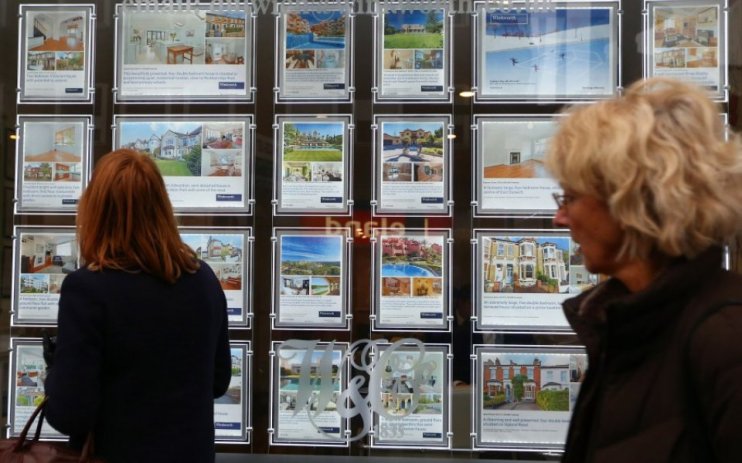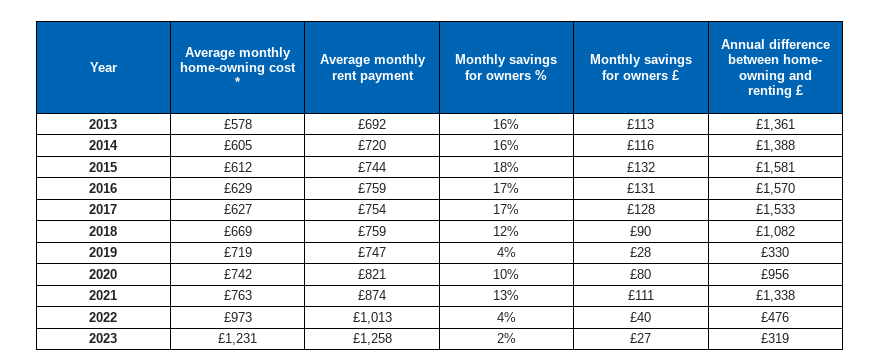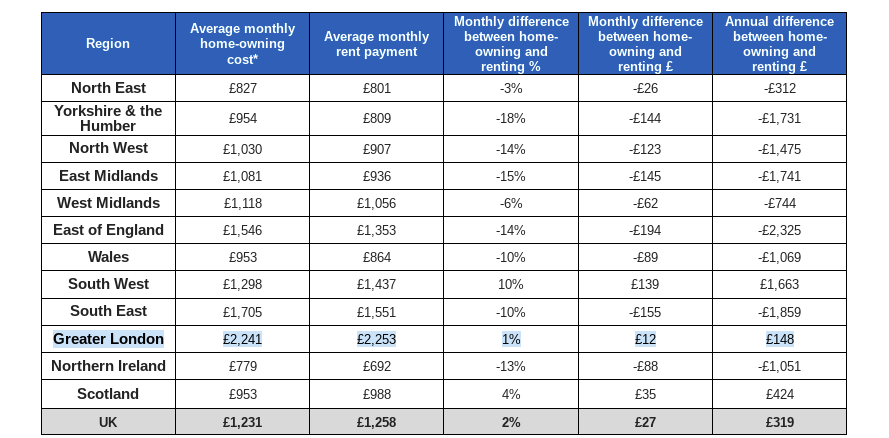London homeowners saving less money as gap between renting and buying narrows

The financial difference between renting and buying has narrowed significantly, with London homeowners saving less money annually.
According to Halifax, the monthly cost to first-time buyers of owning a home is now £1,231, just £27 lower than renting an equivalent property.
This is the smallest gap between home ownership and renting recorded since 2019, the lender said.
The amount homeowners save compared to renters each year has also fallen in the last few years.
Three years ago, property owners saved £1,338 per year, but this fell to £476 the following year and just £319 in 2023.
In London, the monthly difference between renting and buying is just one per cent. Buyers in the capital save £12 a month compared to their lodging counterparts.

Monthly rental costs on a three bed home in last year across the UK grew by 24 per cent to £1,258, while home-owning costs grew by 27 per cent to £1,231.
Despite the financial gap narrowing, owning a home remains aspirational for much of the public as it offers more security in the long run.
Higher interest rates mean first time buyers are struggling to afford mortgage deals, which have risen in response to hikes.
Meanwhile, landlords began either selling their properties to dodge rising mortgage payments – limiting the pool of supply – or passing high costs onto their tenants.

Lodgers also began offering above the asking price to secure a room or flat leading to bidding wars.
Rents in London have previously been forecast to rise by three per cent this year and then hit an “affordability ceiling,” Rightmove said in January.
Across the UK the typical home for rent sees 15 enquiries which is significantly reduced from 40 enquiries per property in 2021, but still double pre-pandemic levels.
Tom Bill, head of UK residential research at Knight Frank said: “ The prevalence of fixed-rate mortgages means any financial pain is entering the system in a staggered way.
“Lenders are also in a much stronger position than during the financial crisis, which means no wave of foreclosures to drive down prices. “
“While the strong labour market is one reason inflation has remained stubbornly high, it has also underpinned buyer demand.”
He added: “The story of the last two years has been a slowdown in transactions not prices, which has made renting a cheaper option in some areas, even though the lettings market has suffered from a lack of supply. “